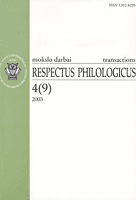ETYMOLOGIA LUDOWA W ŠWIĘTOKRZYSKICH TOPONIMACH
FOLK ETYMOLOGY OF HOLY CROSS TOPONYMS
Author(s): Elżbieta MichowSubject(s): Language and Literature Studies
Published by: Vilniaus Universiteto Leidykla
Keywords: linguistics; onomastics; toponyms; scientific etymology; folk etymology
Summary/Abstract: The article presents some toponyms of Holy Cross, which are under influence of folk etymology. The first group consists of place names, which have undergone some graphic and phonetic changes under the influence of etymology processes. Although in most cases it happened with the names of Holy Cross villages, there are also some names of bigger towns. The main reason of toponymic changes in written and spoken language is the broken relation with the base of a toponym (in most cases they are old Polish names such as Czatosz, Pacon, Pasturz, Þæda, etc.). Finally, it has aroused many wrong sound associations and as a result, secondary combinations with generally accepted words have been formed (e.g. with a noun, adjective, numeral and verb). Sometimes processes of folk etymology are related with dialectal phenomena: impact of Mazur dialect, merger of consonant group, change of vowels, etc. The other group is comprised of toponyms, which have not undergone phonetic or graphic changes but because of etymological and phonetic unconventionality to local people, the changes were explained with the help of literature (regional legends, fables, folk narrations).
Journal: Respectus Philologicus
- Issue Year: 2006
- Issue No: 10 (15)
- Page Range: 158-164
- Page Count: 7
- Language: Polish

